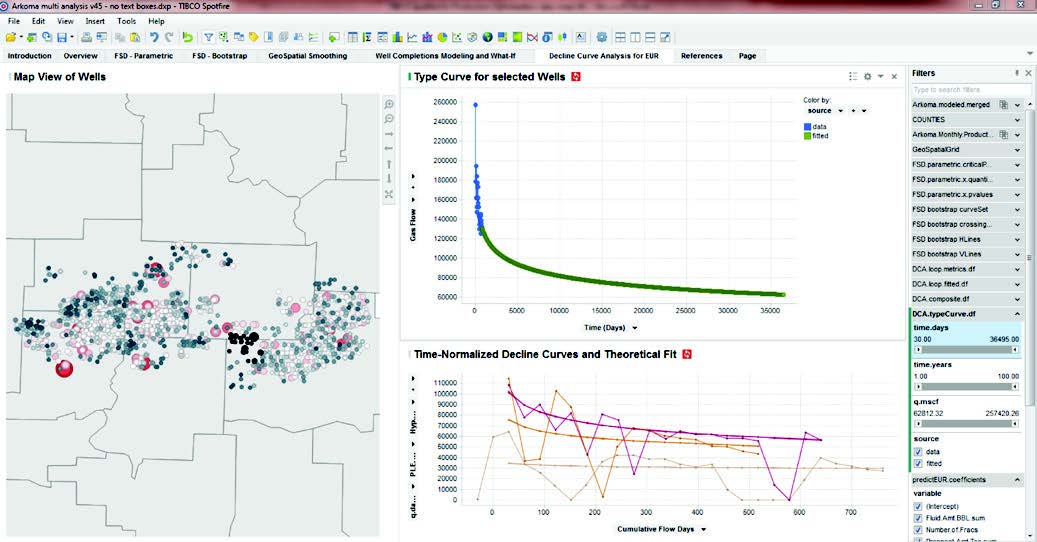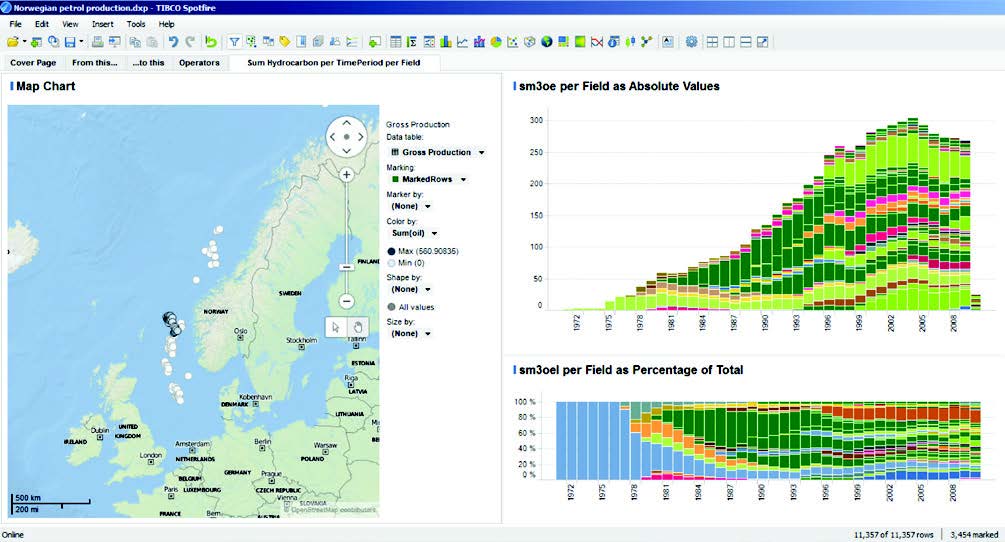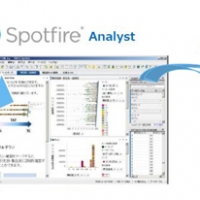TIBCO Spotfire for Production Optimization
TIBCO Spotfire for Production Optimization
New technologies in the oil field have made unconventional sources of oil and gas economical to produce, thus providing energy firms with significant
new opportunities. To respond to this technically challenging and fast-moving environment, companies are augmenting traditional analytic methodologies with data discovery and visualization. Using all their available data, these technologies help them make better, faster decisions on production assets.
CHALLENGES IN PRODUCTION OPTIMIZATION
Geoscientists and engineers need to understand the effect of a variety of technical parameters and combinations that impact oil and gas production and recovery. The results of this understanding drive investment decisions and
facilities plans, logistics and resource planning. To reach this understanding, they need to know more about the wells, the subsurface and the efficacy of different completion and recovery techniques. This means collecting and analyzing more data than ever before (structured and unstructured) from a wide range of sources, and bringing it together so it can be interrogated to identify patterns, trends, and outliers. With this information, they will be able to understand and leverage best practices within a producing asset.
WHY SPOTFIRE?
Spotfire is an integrated analytic platform that allows business and technical users to easily explore and understand their data, find trends and anomalies that improve decision-making, and then share these critical business insights with their peers.
Spotfire allows users to combine all relevant data—whether historical or real- time, structured or unstructured—allowing them to bring textual well reports together with finance data, production data, and geophysical and geological sources to help answer questions such as:
• • What can we expect from new and existing wells given the application of advanced recovery and lifting techniques?
• • What are the underperforming wells, and what are the most appropriate corrective actions?
• How can we reduce unplanned downtime?
Reservoir and production engineers use Spotfire to survey production performance of thousands of wells using a variety of data types from numerous sources. The data is mashed together and visualized so that engineers can instantly identify from a field, reservoir, or well whether current production
falls within expected limits. They can identify factors that affect production, positively or adversely, and determine which wells are candidates for workover or stimulation techniques. Engineers can also perform analysis to identify underperforming equipment and run root cause analysis to develop maintenance programs and right-size equipment, resulting in improved asset efficiency.
ENHANCED RESERVES AND PRODUCTION PREDICTIONS
Spotfire can also leverage advanced statistics to predict production from new and existing wells. Reserves and estimated ultimate recovery (EUR) are predicted more accurately by employing re-useable and decline curve techniques such
as bootstrapping. These techniques can be made interactive to a number of user-input variables such as expected downtime or additional frac stages.
Sophisticated geospatial analytics profile well production across the physical field and more clearly identify new opportunities by location for new and in-fill wells.

Sophisticated decline curve techniques can be used in conjunction with geo- spatial analysis to look for new drill sites.
BEYOND PRODUCTION OPTIMIZATION
Spotfire is helping energy companies worldwide optimize production from the oilfield. It is also used extensively across the energy industry in areas as diverse as asset maintenance and operations, energy trading, portfolio and capital planning, and health and safety analytics. TIBCO Spotfire is the only data discovery platform that helps users of all kinds improve decision-making by using analytics to uncover and share critical business insight and take action on their discoveries.

Spotfire is used globally to analyze and monitor production






댓글 (0)